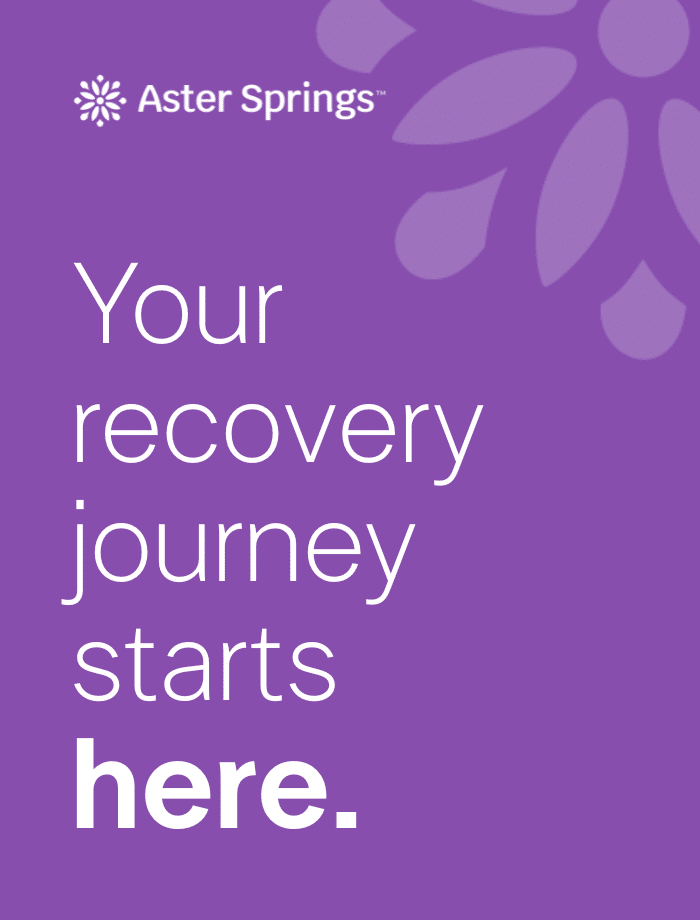It’s common for adolescents to experience ups and downs in their behavior and emotions. They may go through phases in their style and the types of music they listen to; they may be clingy one week and fiercely independent the next.
The constant ebbs and flows of adolescence can make it challenging to differentiate between normal mood fluctuations and warning signs of a more severe problem.
An eating disorder, for instance, may not cause visible symptoms like extreme weight loss, especially in the early stages. Often, there are more subtle red flags that are easy for parents and caregivers to overlook.
By educating yourself and fostering open communication with your teen, you empower yourself to spot the early warning signs of an eating disorder and help your teen avoid the serious psychological, physical, and emotional damage these conditions can cause.
The Prevalence of Eating Disorders in Adolescents
Adolescents are a vulnerable population. They experience the continuous stress of rapid physical, hormonal, and emotional changes in a short period, and due to a combination of factors, whether genetic or environmental, some teens are at an increased risk of developing patterns of disordered eating.
Studies and surveys show the following statistics among adolescents:
- The majority of eating disorders develop during adolescence and young adulthood.
- Anorexia is the third most common chronic illness among adolescents (1).
- As much as 77% of adolescents express dislike of their bodies.
- About 12% of adolescent females suffer from an eating disorder.
- Males make up 25% of people suffering from eating disorders.
- Less than 20% of adolescents receive treatment for their eating disorder (2).
An Overview of Common Eating Disorders
Below, we discuss the main types of eating disorders diagnosed in teens, along with each condition’s warning signs and symptoms.
Anorexia Nervosa
Anorexia is characterized by dramatic weight loss or lack of age-appropriate weight gain, intense fear of gaining weight, and a distorted body image. Individuals suffering from anorexia severely restrict their food intake, may binge and purge, and use laxatives, diuretics, and excessive exercise to lose weight.
Physical Warning Signs
- Weight loss
- Difficulty concentrating or brain fog
- Dizziness and fainting
- Muscle weakness
- Irregular heartbeat
- Difficulty sleeping
- Menstrual irregularities
- Dry skin, brittle nails, dry or dull hair
- Hair loss from the head
- Hair growth on the body (lanugo)
- Feeling cold all the time
- Gastrointestinal problems (constipation, acid reflux, abdominal pain)
Behavioral Warning Signs
- Preoccupation with weight, food, and calories
- Skipping meals
- Frequent body checking
- Avoiding eating in public
- Wearing baggy clothes
- Excessively exercising
- Using food rituals (over chewing, over cutting foods, taking tiny bites)
- Withdrawal from friends and activities (3)
Bulimia Nervosa
Bulimia nervosa is characterized by a cycle of binging and purging through the use of compensatory behaviors to prevent weight gain. Compensatory behaviors include self-induced vomiting, using laxatives or enemas, excessive exercise, and restricting food and calories.
Physical Warning Signs
- Tooth decay and gum damage
- Russel’s sign: Calluses that form on the knuckles due to skin damage during self-induced vomiting
- Swollen salivary glands
- Gastrointestinal problems (constipation, diarrhea, abdominal pain, and acid reflux)
- Blood present in vomit or stool
- Dehydration
- Irregular heartbeat
- Dizziness or fainting
Behavioral Warning Signs
- Eating in secret
- Eating larger amounts of food than normal
- Frequent dieting
- Frequent body checking
- Using food rituals
- Leaving evidence of laxative, diuretic, or diet pill use
- Frequently disappearing or using the bathroom soon after eating
- Excessive use of mouthwash, mints, or gum
- Isolating from friends and family (4)
Binge Eating Disorder (BED)
Binge eating disorder is characterized by frequent, recurring episodes of eating large amounts of food, often quickly and to the point of physical discomfort. During these episodes, individuals experience a sense of loss of control and an inability to stop eating.
Physical Warning Signs
- Difficulty concentrating
- Fluctuations in body weight
- Gastrointestinal problems (constipation, acid reflux, abdominal pain)
Behavioral Warning Signs
- Leaving evidence of large amounts of consumed food (wrappers and containers)
- Creating schedules to accommodate binges
- Hoarding food
- Stealing and hiding food
- Extreme concern over gaining weight
- Skipping meals
- Frequent dieting
- Isolating from friends and family (5)
Each of these conditions share a number of symptoms, the majority of which are psychological:
- Poor body image
- Low self-esteem
- Guilt
- Shame
- Self-loathing
- Isolation
- Anxiety and depression
Although not as typical, teens can also suffer from other less common eating disorders, including the following:
- Avoidant restrictive food intake disorder (ARFID): An aversion to eating due to intolerance of smells, tastes, textures, and appearances of food
- Orthorexia: A concern over and obsession with eating only healthy foods to the point of malnutrition
- Rumination Disorder: The repetitive regurgitation of foods for a duration of at least one month
- Pica: The continuous eating of non-food substances with no nutritional value, such as paper, soap, dirt, paint, and string, for a duration of at least one month
- Compulsive exercise disorder: Compulsive exercise that disrupts everyday life and activities, occurs at inappropriate times and places, and can lead to injury and extreme weight loss (3)
The following case study provides a picture of anorexia in an adolescent. YL, a 14-year-old girl, presented to the clinic with a three-month history of amenorrhea even though she had a regular menstrual cycle since she was 12. Her parents stated she had been dieting for seven months and losing weight. She admitted to skipping breakfast and lunch, avoiding fatty foods, and hiding her dinner in a plastic bag and throwing it away. She stated her diet was triggered by her brother teasing her about her weight and that she had feelings of low self-esteem and a poor body image. YL also struggled with communication, especially with her strict father, which led her to repress her feelings. Her parents described her as academically successful and a perfectionist. Her vital systems, body systems, and labs were within normal limits (6).
This case demonstrates how perfectionism and family dynamics can contribute to eating disorder behaviors and body image concerns. It also shows how adolescents hide their eating disorder behaviors. Still, parents can pick up on warning signs like menstrual irregularities, skipping meals, and weight loss and take action before further physical complications occur.
Gender-Specific Warning Signs
There are many similarities between the experiences of teenage boys and girls with eating disorders. However, it’s also important to recognize the differences. Whereas girls often desire to be thin and face pressures about weight, boys are affected by pressures to appear muscular and athletic. Boys engage more in excessive exercise and supplement use, while girls are more likely to restrict foods. Additionally, boys may internalize their emotions more than girls and display more anger and frustration (7).
There is also a need for awareness within the LGBTQ+ community, as they face unique challenges surrounding eating disorders. LGBTQ+ youth are three times more likely to suffer from an eating disorder than heterosexual teens. About one-third of sexual minority teenagers report using dangerous behaviors to control their weight, and many transgender individuals use eating disorders to change their bodies when hormones aren’t an option (2).
The Importance of a Supportive Network
While it might feel uncomfortable, it’s crucial to start an open conversation with your teen about your worries if you suspect they have an eating disorder. The best way to assist them is by honestly expressing your concerns and assuring them of your love and support. Recovery is a joint effort, and your presence and support are invaluable during their journey.
Approach your teen with your concerns in a non-judgmental way, acknowledging that they might be struggling with low self-esteem, guilt, and shame. When initiating the conversation, maintain a calm and supportive tone, without blame or correction, and assure them that you’ll find the right treatment options together.
The Necessity of Early Intervention
Early intervention is crucial because the longer eating disorders go untreated, the higher the risk for severe physical, emotional, and psychological consequences and even death. Acting in the early stages is critical to prevent complications. If the illness persists, it becomes less responsive to treatment, reducing the chances of full recovery. The following are reasons why early intervention is beneficial:
- Lifesaving. Eating disorders have the highest mortality rate of any psychiatric disorder. The earlier an eating disorder is identified and addressed, the better the chances of avoiding severe consequences, such as organ failure and death.
- Full, long-lasting recovery. Early intervention can prevent psychological consequences, such as depression and anxiety, which often co-occur with eating disorders.
- Preventative. Early intervention can prevent physical complications like severe malnutrition and organ failure.
- Habit breaking. Early intervention gives individuals a better chance of disrupting negative behaviors and habits around food (1).
There is no substitute for professional help. A treatment team comprised of healthcare professionals specializing in eating disorders, including psychiatrists, therapists, and dietitians, will determine the best treatment plan and interventions for your teen. They will also provide education and guidance to parents on how to best support their child during treatment and recovery.
A treatment plan can be carried out in an inpatient, residential, partial hospitalization, or outpatient setting and usually includes psychotherapy, medication management, and nutritional counseling. The treatment program and therapies involved depend on the adolescent’s individual needs, the severity of their eating disorder, and whether they are medically stable.
At Toledo Center, we offer treatment programs tailored to the individual needs of children and teens of all genders. We provide a safe space for adolescents during the treatment process and offer resources and support to parents and families. Contact Toledo Center at 419-885-8800 to learn how our compassionate staff can help you or your loved one begin the journey toward lasting recovery.
References
- Jones, M., & Brown, T. (2022). Why Early Intervention for Eating Disorders is Essential. National Eating Disorders Association. https://www.nationaleatingdisorders.org/sites/default/files/ResourceHandouts/StrategiesforPreventionandEarlyInterventionofMaleEatingDisorders.pdf
- National Association of Anorexia Nervosa and Associated Disorders. (n.d.). Eating disorder statistics. Retrieved November 21, 2023, from https://anad.org/eating-disorders-statistics/
- National Eating Disorders Association. (2022). Warning signs and symptoms. https://www.nationaleatingdisorders.org/warning-signs-and-symptoms
- National Eating Disorders Association. (2022). Bulimia nervosa. https://www.nationaleatingdisorders.org/learn/by-eating-disorder/bulimia
- National Eating Disorders Association. (2022). Binge eating disorder. https://www.nationaleatingdisorders.org/learn/by-eating-disorder/bed
- Khairani, O., Majmin, S., Saharuddin, A., Loh, S., Azimah, N., & Tohid H. (2011). An adolescent with anorexia nervosa – A case report. Malaysian Family Physician, 6(2-3), 79-81. https://www.ncbi.nlm.nih.gov/pmc/articles/PMC4170427/
- Coelho, J. S., Suen, J., Marshall, S., Burns, A., Geller, J., & Lam, P. (2021). Gender differences in symptom presentation and treatment outcome in children and youths with eating disorders. Journal of Eating Disorders, 9, 113. https://jeatdisord.biomedcentral.com/articles/10.1186/s40337-021-00468-8
Kate Delaney Chen, BSN, RN-BC is a healthcare writer and registered nurse with over 17 years of bedside experience. She specializes in Psychiatric Nursing and Nephrology and currently works at a nationally recognized Inpatient Eating Disorders Program.


